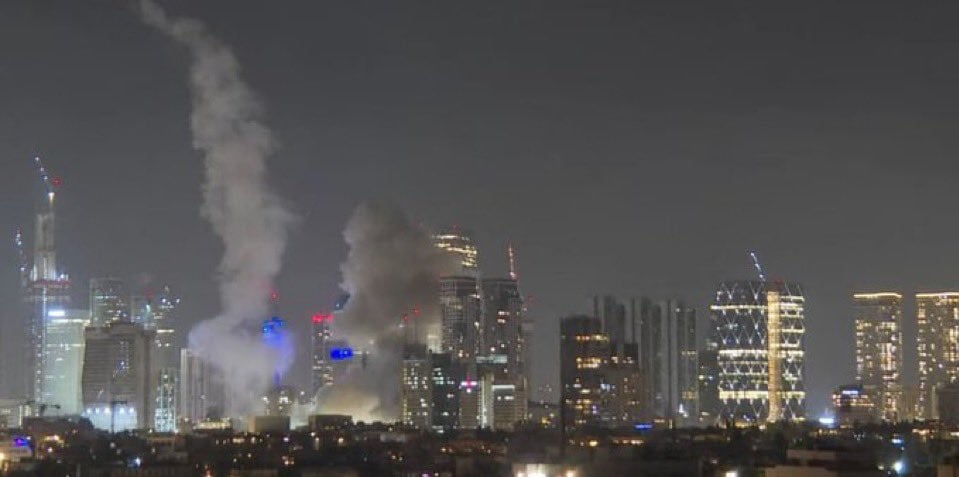In a dramatic escalation of hostilities, a ballistic missile launched by Iran struck Tel Aviv, causing significant damage and raising alarm across the region. The strike comes amid a rapidly intensifying conflict between Iran and Israel, following Israel’s recent airstrikes on Iranian nuclear sites and senior military figures.
Eyewitnesses reported a loud explosion and rising plumes of smoke over central Tel Aviv. Initial assessments suggest the missile successfully penetrated Israel’s advanced multi-layered air defense systems, including the U.S.-made THAAD and the domestically developed Arrow system. This development has raised serious concerns about the effectiveness of these defenses against evolving threats.
The strike is believed to be a direct response to Israel’s unprecedented attacks targeting key Iranian infrastructure and leadership figures. In recent weeks, tensions have escalated sharply, with both sides engaging in high-impact retaliatory actions. Iran’s successful missile strike marks a pivotal moment, signaling a new level of direct confrontation between the two regional powers.
Security analysts warn that the missile impact on an urban center like Tel Aviv represents a serious shift in strategy and risk. The strike’s success may embolden further action and potentially provoke a more expansive military response from Israel, heightening the risk of a broader regional conflict.
The United Nations and major international stakeholders have called for immediate restraint. Diplomatic channels are under pressure to intervene as the tit-for-tat exchanges between Iran and Israel threaten to spiral into a full-scale confrontation involving multiple state and non-state actors.
This incident underscores the fragile security landscape of the Middle East, where longstanding rivalries are now playing out through increasingly direct and destructive means.













